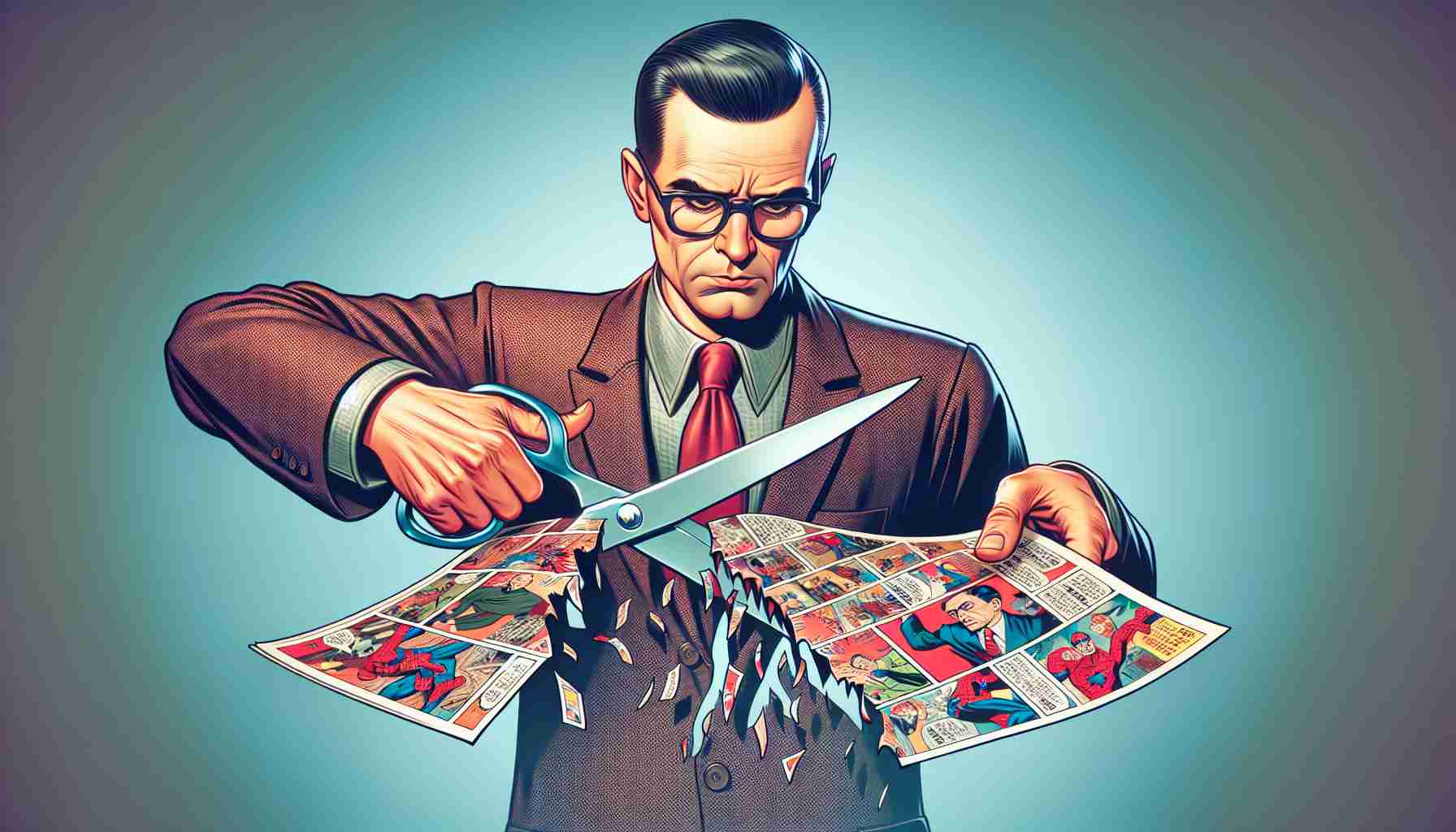- Rob Liefeld, creator of Deadpool and Cable, is departing from Marvel after over 30 years due to dissatisfaction with how creators are treated.
- Liefeld was excluded from the “Deadpool & Wolverine” premiere afterparty, despite his key role in creating Deadpool.
- Marvel’s Kevin Feige allegedly did not acknowledge Liefeld at the event, adding to the perceived disrespect.
- Changes to Wolverine’s co-creator credits further contributed to Liefeld’s unrest, given his connections to Wolverine’s original co-creator.
- Liefeld’s request for significant movie credits was ignored, spurring his decision to leave Marvel.
- His exit highlights ongoing issues in the industry concerning the recognition of comic creators.
- The situation raises questions about future interactions between creators and major studios like Marvel.
Rob Liefeld, the legendary comic creator behind iconic characters like Deadpool and Cable, is stepping away from Marvel after more than three decades. Expressing his dissatisfaction during a heartfelt episode of his podcast, Robservations, and an interview with The Hollywood Reporter, Liefeld painted a vivid picture of repeated snubs captivating fans and industry insiders alike.
The tipping point for Liefeld came at the New York premiere of “Deadpool & Wolverine” in July. Despite being fundamental to the creation of Deadpool, he was excluded from the afterparty, an oversight hard to overlook for someone so integral to the superhero’s success. Adding to this slight, on the red carpet, Marvel’s powerhouse Kevin Feige reportedly didn’t acknowledge Liefeld’s presence.
This wasn’t the first sign of disconnect. Over time, Liefeld sensed a growing discomfort with how Marvel treated its creators. Matters got heated when Marvel altered Wolverine’s co-creator credits, unsettling Liefeld, who has longstanding ties to the family of Wolverine’s original co-creator.
Seeking acknowledgement, Liefeld requested special movie credits akin to the homage paid to Siegel and Shuster in 1978’s “Superman.” His plea, however, was met with indifference from Marvel’s top brass, reinforcing his decision to part ways.
This decision casts a spotlight on broader industry practices. Despite the Hollywood glam, comic creators often battle behind the scenes for recognition. Liefeld’s departure serves as a resounding call for change, urging Marvel—and the wider comic universe—to recognize the creators behind the magic.
Will this be a wake-up call for Marvel? Readers are left pondering the future interactions between creators and major studios.
Marvel Shake-Up: Rob Liefeld’s Exit Sparks Industry Debate
Rob Liefeld’s Departure: What It Means for Marvel and the Comic Industry
Rob Liefeld, renowned for creating iconic characters like Deadpool and Cable, has officially parted ways with Marvel due to dissatisfaction over recognition and credit. This event sheds light on issues many comic creators face in the industry, prompting significant discussion.
Key Questions and Answers
1. How Does Liefeld’s Exit Impact Marvel and Other Creators?
Liefeld’s departure underscores the broader challenges comic creators face in terms of recognition and compensation within the industry. His exit could serve as a catalyst for change, encouraging other creators to seek better acknowledgment and benefits for their work. This might force Marvel, and similar studios, to re-evaluate and potentially reform their practices concerning creator rights and credits.
2. What Are the Financial Implications for Marvel?
While Marvel has not released any statements regarding financial changes due to Liefeld’s exit, his absence might have indirect implications. Liefeld’s characters generate substantial revenue, and his departure could influence fan perceptions and engagement with Marvel’s future projects. However, Marvel’s strong brand presence may help cushion some potential financial impacts.
3. Could This Lead To Improved Practices Within the Comic Industry?
Yes, Liefeld’s decision to leave over issues of recognition could signal a stronger movement towards improved industry practices. As conversations grow stronger around fair compensation and creator recognition, companies may face increased pressure to adopt contracts and conditions that are more creator-friendly, potentially leading to a more equitable environment across the industry.
Insightful Links
– For more insights on the comic industry dynamics, visit Marvel.
– Discover more about creator rights initiatives at Creators’ Rights.
This pivotal moment for Rob Liefeld may serve as a turning point not only for Marvel but for the comic industry at large, sparking critical reassessments of how creators are valued and credited.
